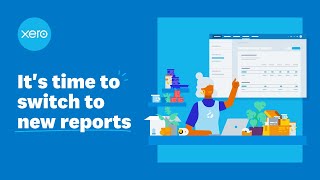Five Tips For A Better Christmas Cash Flow
As any business owner will tell you, getting an invoice paid on time can seem like a miracle. Chasing payments is an absolute drainer and takes up far too much time. It’s also just an unpleasant task. Especially in the early stages, unpaid invoices have a huge impact on cash flow, which has follow on consequences throughout the business. Can you cover this month’s wages? Are those extra laptops you desperately need on the back burner?
The average time it takes for invoices to be paid is 35 days. In the lead up to and after Christmas, that gets even more stretched out- a total nightmare for small businesses that are already seeing a drop in workload over the holiday period. The income is needed more than ever. We’ve put together some tips to try and avoid late payments and improve cash flow over this Christmas period:
-
Start chasing debtors now
Don’t wait until the week before you take a Christmas break. We all know that often you’ll get the “no problem, it’ll be paid tomorrow” response a few times before a lot of clients actually follow through. Get on top of those late payments now. You can even contact clients who are about to fall into the late category and just send some friendly reminders. People start taking time off and then you’ve got no hope of seeing those dollars before next year.
-
Get onto the cloud
Have you made the change to cloud based accounting software? If not, you need to prioritise it. Cloud accounting means that you can send invoices at any time, wherever you are. In the crazy few weeks leading up to Christmas this is invaluable. If you’re not sending invoices on time then they won’t be paid when they should be. It also means you can keep track of your bookkeeping easily. One look at your invoices page will show what’s overdue and whom you need to chase.
-
Use automatic reminders
Chasing people for payment can start to get awkward. If you have auto reminders going out as soon as an invoice clicks over to being late, it takes out the need for you to personally be sending those emails. Instead, clients will receive a message from your accounting software reminding them to pay the outstanding amount. It also means that you don’t have to remember to do it yourself. If you’re letting invoices become overdue without sending reminders then it will just continue to draw out the process.
-
Make paying as easy as possible
Offer numerous payment methods and make the process as clear and easy as possible. Direct debit, credit card, BPAY… all of the above. The easier it is, the more likely clients are to pay quickly. If they don’t view it as a hassle and it’s a 30 second job then you should see those overdue invoices decrease. For example, Xero has add-ons that link to your Xero account to make putting this into place is very simple. You can start by checking out Stripe.
-
Set a clear process for collecting money, and a policy for overdue payments
Make sure that your payment terms are as clear as possible on invoices. You can even reinforce them in the email too so they literally can’t be missed. Discuss the terms in person whenever you onboard new clients so they’re aware of the process from the get go. Then, have a policy for what happens when payments are overdue. Decide how often you will communicate with a client when they haven’t paid- weekly. Do you up it to daily? Email or phone call? When do you hand it over to the debt collectors? Everyone in your team should be across this so it’s followed for every client.
We hope these tips will help you navigate this festive season. If you have any cash flow concerns, or want to learn more about cloud accounting, then feel free to get in touch with us HERE and Check our Business Packages for Startups, Entrepreneurs, Growing Business Accountant and Establishing Businesses.




